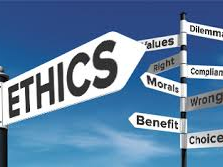Topic 2: The Role of Ethics in Health and Social Care
Overview
Ethics can be defined as a discipline that systematically conceptualises, defines and defends ideas of right and wrong, good and bad. It is the means by which we evaluate actions, behaviours, attitudes, characteristics or state of affairs as good or bad. There are many philosophical lenses and frameworks which are applied to ethical approaches in health and social care.

On a practical level, the Health Research Authority protects and promotes the interests of patients and the public in health and social care research. One of their core functions is to promote ethical review for research in the NHS in Scotland. Research Ethics Committees (REC) are based in geographical Health Boards receiving applications via IRAS (Integrated Research Application Service). All universities will also have their own version of ethical review panel acting as a precursor to seeking HRA approval. The recently formed Research Data Scotland (RDS) has a mission ‘to improve the economic, social and environmental wellbeing in Scotland by enabling access to and linkage of data about people, places and businesses for research in the public good’. RDS have established ‘partnership with Scottish Government, Scotland’s leading academic institutions and Public Health Scotland to facilitate insight from public sector data and promote and advance health and social wellbeing in Scotland’. Safe Havens, including virtual options, are in place for researchers to access public datasets under supervision with ethical review already in place.